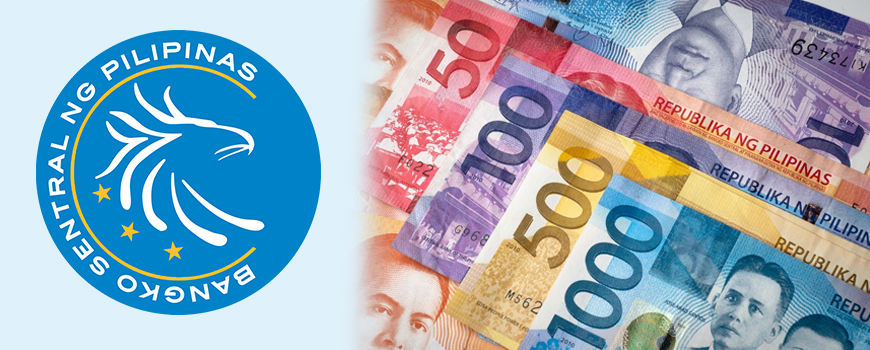
Registration of Foreign Investments with the Bangko Sentral ng Pilipinas (BSP) – Philippines
Registration of foreign/non-resident investments with the Bangko Sentral ng Pilipinas (BSP or Central Bank of the Philippines) is not mandatory. However, it is required when foreign exchange (FX) used to fund repatriation of the capital or remittance of dividends/profits is purchased from the Philippine banking system. The Bangko Sentral Registration Document (BSRD) is one of the prescribed requirements to support an application to buy FX from Philippine banks.
Once you have remitted foreign exchange to fund your investment in the Philippines, it is advisable for you to engage the services of a business consulting firm in the Philippines to help you obtain a BSRD. The BSRD is a document evidencing registration of a foreign investment and is issued by the BSP through the International Operations Department or by a custodian bank registering the investment in Philipine Stock Exchange (PSE)-listed shares acquired through the PSE trading floor on behalf of the BSP.
Overview
The BSP is the central bank of the Republic of the Philippines. It was rechartered on July 3, 1993, pursuant to the provisions of the 1987 Philippine Constitution and the New Central Bank Act of 1993. The BSP was established on January 3, 1949 as the country’s central monetary authority.
Roles and Responsibilities
As prescribed by the New Central Bank Act, the main functions of BSP are:
- Liquidity Management, by formulating and implementing monetary policy aimed at influencing money supply, consistent with its primary objective to maintain price stability;
- Currency issue; the BSP has the exclusive power to issue the national currency. All notes and coins issued by the BSP are fully guaranteed by the Government and are considered legal tender for all private and public debts;
- Lender of last resort, by extending discounts, loans and advances to banking institutions for liquidity purposes;
- Financial Supervision, by supervising banks and exercising regulatory powers over non-bank institutions performing quasi-banking functions;
- Management of foreign currency reserves, by maintaining sufficient international reserves to meet any foreseeable net demands for foreign currencies in order to preserve the international stability and convertibility of the Philippine peso;
- Determination of exchange rate policy, by determining the exchange rate policy of the Philippines. Currently, the BSP adheres to a market-oriented foreign exchange rate policy; and
- Being the banker, financial advisor and official depository of the Government, its political subdivisions and instrumentalities and GOCCs.
The basic structure of BSP includes:
- The Monetary Board, which exercises the powers and functions of the BSP, such as the conduct of monetary policy and supervision of the financial system;
- The Monetary Stability Sector, which takes charge of the formulation and implementation of the BSP’s monetary policy, including serving the banking needs of all banks through accepting deposits, servicing withdrawals and extending credit through the rediscounting facility; and
- The Supervision and Examination Sector, which enforces and monitors compliance to banking laws to promote a sound and healthy banking system, and The Resource Management Sector, which serves the human, financial and physical resource needs of the BSP.
The powers and function of BSP are exercised by its Monetary Board, whose seven (7) members are appointed by the President of the Philippines. As provided for by the New Central Bank Act, one of the government sector members of the Monetary Board must also be a member of the President’s Cabinet.
Members of the Monetary Board are prohibited from holding certain positions in other government agencies and private institutions that may give rise to conflicts of interest. They have fixed, overlapping terms, except for the cabinet secretary representing the incumbent administration.


